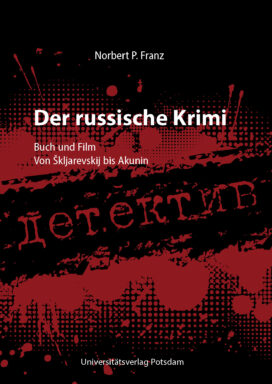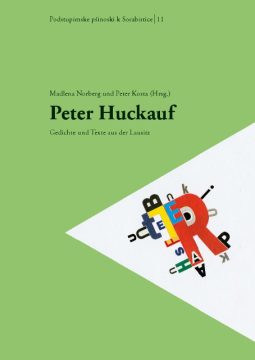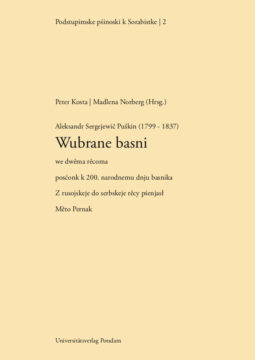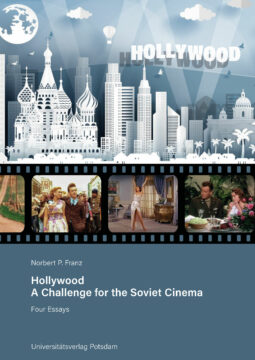Der russische Krimi presents the first comprehensive account of crime fiction in Russia. It offers detailed discussions of books and movies and also of the broader critical literary debates, as cultural policy during the Soviet decades would not easily grant the crime genre any right to exist. Instead, generating sympathy for the security apparatus eventually became the official purpose of this genre, which was politically relegated to a niche existence. Accordingly, the study places particular emphasis on ideology, especially in the portrayal of the heroes and their opponents and a fictional reality that the reader should nonetheless recognize as his own. In this process, he learns a lot about the darker sides of society that are otherwise mostly kept secret. Not least because of the long-time scarcity of exciting texts, after the end of socialism crime fiction became the bestseller genre par excellence. These post-Soviet developments up to the 2010s are shown using the example of the women’s crime novel (Marinina and her successors) and the postmodern crime novel (Akunin).
Buch und Film ; Von Škljarevskij bis Akunin
ISBN: 978-3-86956-573-6
506 pages, Paperback
Release year 2024
32,00 €
Non-taxable transaction according to § 1 (1) UStG/VAT Act in combination with § 2 (3) UStG/VAT Act a. F. Providing this service, the University of Potsdam does not constitute a Betrieb gewerblicher Art/Commercial Institution according to § 1 (1) No. 6 or § 4 KStG/Corporate Tax Act. If the legal characterization of our business is changed to a commercial institution subsequently, we reserve the right to invoice VAT additionally. zzgl. Versandkosten
Der russische Krimi presents the first comprehensive account of crime fiction in Russia. It offers detailed discussions of books and movies and also of the broader critical literary debates, as cultural policy during the Soviet decades would not easily grant the crime genre any right to exist. Instead, generating sympathy for the security apparatus eventually became the official purpose of this genre, which was politically relegated to a niche existence. Accordingly, the study places particular emphasis on ideology, especially in the portrayal of the heroes and their opponents and a fictional reality that the reader should nonetheless recognize as his own. In this process, he learns a lot about the darker sides of society that are otherwise mostly kept secret. Not least because of the long-time scarcity of exciting texts, after the end of socialism crime fiction became the bestseller genre par excellence. These post-Soviet developments up to the 2010s are shown using the example of the women’s crime novel (Marinina and her successors) and the postmodern crime novel (Akunin).
Recommended Books
-
 2014
2014Peter Huckauf
10,00 €Non-taxable transaction according to § 1 (1) UStG/VAT Act in combination with § 2 (3) UStG/VAT Act a. F. Providing this service, the University of Potsdam does not constitute a Betrieb gewerblicher Art/Commercial Institution according to § 1 (1) No. 6 or § 4 KStG/Corporate Tax Act. If the legal characterization of our business is changed to a commercial institution subsequently, we reserve the right to invoice VAT additionally.
zzgl. Versandkosten
Add to cart -
 2000
2000Wubrane basni : w dwěma rěcoma ; posćonk k 200. narodnemu dnju basnika
7,00 €Non-taxable transaction according to § 1 (1) UStG/VAT Act in combination with § 2 (3) UStG/VAT Act a. F. Providing this service, the University of Potsdam does not constitute a Betrieb gewerblicher Art/Commercial Institution according to § 1 (1) No. 6 or § 4 KStG/Corporate Tax Act. If the legal characterization of our business is changed to a commercial institution subsequently, we reserve the right to invoice VAT additionally.
zzgl. Versandkosten
Add to cart -
 2020
2020Hollywood – A Challenge for the Soviet Cinema
21,50 €Non-taxable transaction according to § 1 (1) UStG/VAT Act in combination with § 2 (3) UStG/VAT Act a. F. Providing this service, the University of Potsdam does not constitute a Betrieb gewerblicher Art/Commercial Institution according to § 1 (1) No. 6 or § 4 KStG/Corporate Tax Act. If the legal characterization of our business is changed to a commercial institution subsequently, we reserve the right to invoice VAT additionally.
zzgl. Versandkosten
Add to cart -
 2013
2013Adam Mickiewicz
13,00 €Non-taxable transaction according to § 1 (1) UStG/VAT Act in combination with § 2 (3) UStG/VAT Act a. F. Providing this service, the University of Potsdam does not constitute a Betrieb gewerblicher Art/Commercial Institution according to § 1 (1) No. 6 or § 4 KStG/Corporate Tax Act. If the legal characterization of our business is changed to a commercial institution subsequently, we reserve the right to invoice VAT additionally.
zzgl. Versandkosten
Add to cart
Contact
Potsdam University Library
University Press
Am Neuen Palais 10
14476 Potsdam
Germany
verlag@uni-potsdam.de
0331 977-2094
0331 977-2292





